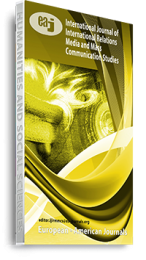The Economic Community of West African States (ECOWAS) evolved gradually since 1975. Its creation was intended for cooperation and an envisaged eventual integration in trade, security, unified tariff systems and legalities in a common court and parliament. Did these expectations come to fruition? Did the signatories reap optimal benefits from the ECOWAS? What were the cost-benefit implications for the exiting nations of Burkina Faso, Mali and Niger vis-à-vis their economies, politics, security and, generally, freedom of movements and migrations? These nations exited seemingly because the ECOWAS failed in the implementation of the ideals for which it was conceived. Moreover, bigger member-nations, such as Nigeria and Ghana that made more financial contributions to the association immediately wielded the big stick of suspension. This action nexus the coups d’etat in the nations was overreaching especially since the ECOWAS failed in the overall purpose of regional integration, promotion of intra-national trade and in ensuring security in the West African subregion. Additionally, the exiting nations accused former colonists, majorly France, of meddlesomeness in the internal affairs of the ECOWAS and conceived that the ECOWAS was no longer a safe haven vis-à-vis the insecurity that characterized the Sahel region of West Africa. Insecurity was exemplified by the activities of al-Qaeda and ISIL (ISIS) that competed with each other for footholds in the region. It was concluded that ECOEXIT portended greater danger since freedom of movements of the people; goods and capital which underpinned integration, were curtailed. That border controls, tariff and customs’ checks were reintroduced and further complicated intra-regional businesses and activities that flowed to some extent before ECOEXIT. Primary sources were used extensively while secondary sources served complementary purposes.
Keywords: ECOEXIT, Ecowas, Failures, Freedom, Insecurity, Nations, exiting, interregional, movements, rationality, suspension.

